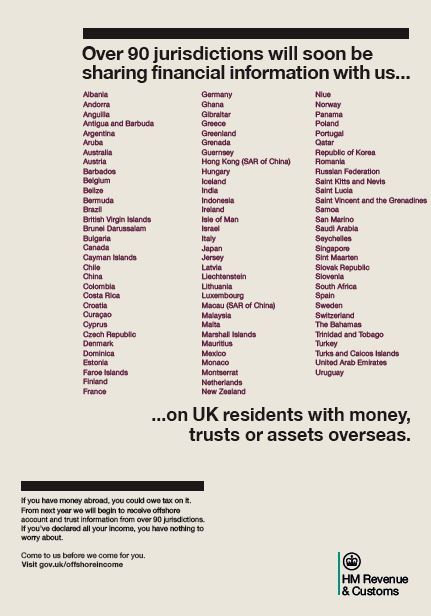UK Expats Lose the Battle to Vote in the BREXIT Referendum!
Thursday, April 28, 2016

British expats lose High Court battle over ‘Brexit’ vote
By Monira Matin - International Adviser Publication
Added 28th April 2016
British expats will not have the right to vote in the UK’s upcoming EU referendum after a High Court challenge to the rules failed on Thursday.
The court case was brought by Italian resident Harry Shindler, a 94-year-old World War Two veteran and British lawyer Jacquelyn MacLennan, who lives in Belgium.
The pair claimed that expats living overseas should have the right to vote in EU referendum, due to be held on 23 June, as it will decide whether or not Britain leaves the EU - a decision, they argue, directly affects them.
The decision means that around 800,000 expat voters who are thought to live in Europe have not been granted the right to vote in this year's referendum.
‘15-year rule’
Under current law, UK citizens living abroad for more than 15 years cannot vote in the country’s elections.
Lawyers acting on behalf of the expats had hoped to get a judicial review into section two of the EU Referendum Act 2015, which established ‘the 15-year rule’, for unlawfully restricting their right to freedom of movement under EU law.
But the judges ruled that the law does not restrict their rights and rejected their legal challenge.
Shindler - who has lived in Italy since 1982 – and other British expats have long argued that the 15-year cut-off is “arbitrary” and that rules governing UK general elections are not being applied evenly.
Resident aliens
Aidan O'Neill QC, the lawyer representing the expats, told the court that should Britain decide to leave the EU then Shindler and MacLennan would become "resident aliens" in Europe.
They would no longer be EU citizens and their right to live, work, own property, and receive health care free at the point of use, could be placed in jeopardy, he added.
Ruling
However, in their ruling the judges said the UK government was entitled to adopt a cut-off period “at which extended residence abroad might indicate a weakening of ties with the United Kingdom”.
They noted that there would be “significant practical difficulties about adopting, especially for this referendum, a new electoral register which includes non-resident British citizens whose last residence in the UK was more than 15 years ago”.
Supreme Court challenge
Shindler and MacLennan have vowed to continue their legal battle by taking the case to the Supreme Court.
Gibraltar gets EU vote
The lawyers in Thursday’s ruling also questioned why the residents of Gibraltar, who would not normally be able to take part in the UK’s general elections, are allowed to vote in June’s referendum.
In 2013, while drafting the EU Referendum Act, MPs argued that the British overseas territory’s 2,000 inhabitants should be given the right to decide whether they wanted to be a part of EU.
Meanwhile, in February, Jersey’s chief minister was forced to deny claims that it rejected an invitation by the UK government to take part in the Brexit vote.
This comes as Hollywood actor John Rhys-Davies set up a petition earlier that month calling for people living in the crown dependencies of Jersey, Guernsey and the Isle of Man to be allowed to vote in the referendum – so far the petition has only gathered 1,737 signatures.
Original article here:
http://www.international-adviser.com/news/1028897/british-expats-lose-court-battle-brexit-vote?utm_source=Adestra&utm_medium=email&utm_term=&utm_content=British%20expats%20lose%20High%20Court%20battle%20over%20%E2%80%98Brexit%E2%80%99%20vote&utm_campaign=international_adviser_newsletter_3_28_04_2016#sthash.a2kg4vET.dpuf
 0
Like
Published at 5:58 PM Comments (11)
0
Like
Published at 5:58 PM Comments (11)
Expat in Spain or Moving to Spain?
Wednesday, April 27, 2016
by Sandy Paterson

Austerity measures introduced as a result of the financial crisis in Spain have given rise to the Spanish Tax Authorities (Hacienda) looking to “top up the pot”, with Expat’s seen as a “soft target”. Sound familiar?
However, there are legitimate Spanish tax compliant solutions from internationally recognised companies which can be used to protect much of your savings and wealth from taxation.
Residency
As always with taxation the need to establish residency is key, so are you a Spanish Tax Resident?
Establishing residency in Spain is relatively simple. You are a Spanish resident if you:
- Live in Spain more than 183 days (not necessarily in one sitting). Or;
- Have your “centre of vital interest” in Spain. These rules have been tightened to catch those who deliberately spend less than 183 days a year in Spain to avoid tax.
How do you avoid this?
Solutions are available such as Spanish Compliant Investment Bonds, these are very useful because they:
- Do not need to be declared on Modelo 720
- Are structured to be “compliant” for Spanish tax
- Allow tax liabilities to be calculated by the bond provider and paid directly to the Hacienda
- Avoid probate on death
- Are Inheritance tax efficient
- Have very favourable tax treatment in Spain, although still taxable to a small extent
- Can access a large range of investments to suit different risk profiles, including low risk capital protected funds
Using compliant investment bonds created specifically for Expats in Spain saves tax and keeps the Hacienda at arms-length.
Other questions I’m asked by Expats:
What happens when I die?
For Spanish residents succession law applies to worldwide assets and when assets are passed between spouses either during life or on death. Since August 2015 the EU has allowed you to choose your native country or country of residence with regards to Inheritance Tax. Which should you choose?
Are my current investments tax efficient?
Your UK & Offshore (Isle of Man, Jersey etc.) bank accounts and investments including ISA's and National Savings are not recognised under Spanish Law and are liable to Spanish tax at the highest rate. They need to be declared (Modelo 720) above a certain sum. Have you declared yet?
UK pension or QROPS?
Given the importance of your pension, ensuring the tax efficiency and safety of your pension fund needs careful planning. Should the pension remain in the UK or is it better elsewhere, in a QROPS for example? How can Income be structured to pay the lowest possible tax?
Advice is Crucial
Professional, Independent Financial Advice combined with locally compliant products will help you reach your financial goals tax-efficiently, and without being tripped up by the Hacienda.
Get in touch with us now to discuss your options. In the meantime you could request one of our FREE Financial Guides.
 0
Like
Published at 7:24 PM Comments (0)
0
Like
Published at 7:24 PM Comments (0)
Spanish Tax Rules and Expats
Wednesday, April 27, 2016
by Sandy Paterson

Background
During the course of the last couple of years a number of changes were made to the Spanish Tax system which have significant implications for Expats in Spain.
This is not just happening in Spain of course, Governments around the world are looking for additional tax revenue and with the amount of information being shred about individual’s finances between countries Expats have become a “soft target.
This focus on unpaid tax around the world has seen nations entering into financial disclosure agreements with each other, with any country not “signing up” being regarded as financially “dodgy” and some even being blacklisted. Clearly investments held “offshore” have come under scrutiny. Declaring offshore investments & assets has always been a legal requirement in most EU countries but many people have been completely unaware of this, or have been sticking their head in the sand believing that the taxman cannot see these investments so they won’t be able to tax them. Be warned this is most definitely not the case now, your information is being shared.
Recent very public “naming & shaming” of companies and individuals using tax loopholes to avoid paying tax has been used as a tool to deter others by the UK the Government. The UK is now not alone in this as countries affected by financial crisis are desperate to pull in as much tax as possible to prop themselves up. This has left some individuals owing taxes to more than one country on the same assets.
Spain, despite recent financial woes is still the number one destination for UK Expats to retire to, leaving the Spanish Government with a nice easy target for additional tax revenue from the ever growing expat community.
Delaration of Assets (Modelo 720 Form)
Under the new rules, Spanish Residents (are you certain you are not considered resident in Spain? (see below)) must declare overseas assets worth more than €50,000 on the Modelo 720 Tax Form. This includes:
- Property (your old home you kept and now let out in the UK perhaps).
- ISA’s (the Spanish Government looks straight through the tax wrapper as if it was not there)
- Bank accounts
- Protection policies
Are you a Spanish Resident?
Whilst it seems complicated establishing residency in Spain is actually relative simple. You are a Spanish resident if:
- You live in Spain for more than half a year (not necessarily in one sitting). Or;
- You have your ‘centre of vital interest’ in Spain. These rules have been tightened up to make sure those who deliberately spend less than 183 days a year in Spain to avoid tax.
Non-declaration of assets could result in significant fines, sometimes more than the amount of the undeclared asset’s entire value. There have already been cases where Expats have suddenly been presented with a tax bill and a fine despite having thought that their assets were “invisible” to the Spanish Hacienda.
What can you do to avoid this?
Spanish tax compliant solutions are available such as Spanish Compliant Investment Bonds, which are very useful for the following reasons:
- They do not need to be declared on Modelo 720
- The structure of the Bond is such that they are “compliant” as seen by the Hacienda
- Any tax liability due is calculated by the bond provider and paid direct to the Hacienda
- Avoid the need for probate on death
- Multi currencies available
- Inheritance tax efficient
- Whilst they are still taxable to some extent, the tax treatment is very favourable in Spain when compared to not using this method so potentially large tax savings can be made
- There is a very large range of investments, asset classes, different risk profile investments available within the bond including some capital protected funds for low risk investors
The use of Spanish compliant investment bond products created specifically for Expats in Spain enables you to save tax and have the peace of mind needed for a comfortable retirement.
Get in touch to discuss how we can help you save tax. In the meantime request our FREE Guide to Spanish Tax Compliant Investments.
 0
Like
Published at 7:23 PM Comments (0)
0
Like
Published at 7:23 PM Comments (0)
UK Style Pension Freedoms now available for Expats.
Wednesday, April 27, 2016
Navigating the Pensions Minefield for UK Expat’s in Spain

Background
The sweeping changes to UK Pensions announced in the Budget have cut a swathe through what used to be “de rigueur” for financial advice regarding investing in, taking income from, transferring abroad or what happens on death with regards to your pension. Add to that the dramatic reduction in the number of available QROPS brought about by HMRC writing to all such schemes to ask them to re-state their suitability to on the HMRC list (link below) and we have a new “pensions landscape” to consider.
https://www.gov.uk/government/publications/list-of-qualifying-recognised-overseas-pension-schemes-qrops/list-of-recognised-overseas-pension-schemes-notifications
You will also notice on this page that QROPS are now referred to as ROPS, HMRC having dropped the word qualifying as this gave a false impression that they were somehow endorsed by HMRC.
What are the Changes?
In brief the changes which have taken place are:
- Pension drawdown has become much more flexible
- You no longer have to convert your pension fund into an annuity at retirement (this has actually been true for a few years now but was not widely known)
- People who have already opted for an annuity can potentially trade them for a lump-sum from 2016
- The Pension Commencement Lump Sum (PCLS or better Tax-Free Cash) does not change from the original 25% but can now be taken as a series of lump sums.
- The remaining fund of 75% can be taken as income as a series of lump sums rather than monthly (taxable)
- Major changes to the death benefits depending on age, leading to interesting succession planning possibilities
- You may take the entire value of your pension pot as a lump sum (25% tax free and the remainder subject to tax at emergency tax rates, some of which you may claim back in your tax return later.
Interestingly news from Royal London has indicated that nearly 70% of people have opted for this route with quite a number being shocked by the tax charge. Even more worryingly a large number of these people have simply deposited the money in their bank and are paying tax on the interest received (if they even get any). This is frankly mad and as an Independent Financial Adviser infuriates me that advice was not sought, even a short, cost-free phone call could have at least highlighted the tax problem and other available options.
The cynics amongst us (who me?) may believe that collection of additional tax revenue was the true purpose of the new “pension freedoms” in the first place.
So what about QROPS?
You could be forgiven for thinking that HMRC would simply “export” the new freedoms over to QROPS. This however is not practical for a few reasons:
- Different jurisdictions have different rules
- The flexibility and pension freedoms now available in the UK do not apply to QROPS from April 2015,although this has now chaged for some jurisdictions!
- QROPS benefits cannot be taken prior to age 55 except in the case of serious ill health. Taking QROPS benefits prior to age 55 was one of the big “sales pushes” of previous schemes. This has been removed and is one of the main reasons such a large number of schemes have disappeared from the HMRC list.
HMRC View of QROPS (now ROPS)
The following excerpt was taken directly from the HMRC website:
“HM Revenue and Customs (HMRC) can’t guarantee these are Recognised Overseas Pension Schemes (ROPS) or that any transfers to them will be free of UK tax. It is your responsibility to find out if you have to pay tax on any transfer of pension savings.
HMRC will usually pursue any UK tax charges (and interest for late payment) arising from transfers to overseas entities that do not meet the ROPS requirements even when they appear on this list. This includes where taxpayers are overseas. HMRC will also charge penalties in appropriate cases.
Tax relief is given on pensions to encourage saving to provide benefits in later life. Accessing benefits (directly or indirectly) before age 55 will result in a liability to UK tax charges in all but the most exceptional circumstances. You should seek suitable professional advice including from a regulated financial adviser”.
Message from the Author
Pension legislation, tax implications and the recent changes / freedoms have forever changed Pension Advice. This is a hugely complex area of financial planning and we have not even discussed the various investments which can be held in a pension.
The Pension freedoms available in the UK have now been made available to certain UK expats and this is an area where advice is needed as you may well benefit from transferring to a QROPS.
As mentioned in the last paragraph of the excerpt above by HMRC “You should seek suitable professional advice”. Speaking as an Independent Financial Adviser in Mallorca I clearly have a vested interest in saying “I couldn’t agree more”. But you have to consider that you also have a vested interest in seeking Qualified, Independent Advice, after all the cost of making a mistake will far outweigh the cost of advice.
Get in touch directly or click on the link at the bottom of the article to access our range of financial guides including QROPS.
 0
Like
Published at 7:21 PM Comments (0)
0
Like
Published at 7:21 PM Comments (0)
UK State Pension in Spain
Wednesday, April 27, 2016
UK State Pension Payments into Spanish Account

A relatively little known fact is that, UK pensions paid directly into a Spanish bank account cannot, legally, be charged any form of commission or other charges, also Government / State Pensions are converted at Government set exchange rates which are set monthly. For May 2016 this rate is 1.2708 and here is a link to the rates page.
https://www.gov.uk/government/publications/hmrc-exchange-rates-for-2016-monthly Make sure to look up the Euro rate under Eurozone as you will not find EU countries listed seperately.
If the pension is paid into a UK bank account and then transferred then the normal charges apply, which will be more costly than a direct transfer to a Spanish account.
In addition to the State Pension, Occupational pensions can usually be paid directly into a Spanish account but some pension providers make a small charge usually around £3 or so. Exchange rates will vary but are generally at wholesale rates.
The UK State Pension is always taxable in Spain under the terms of the double taxation treaty. Be careful here because if you don't apply to have it paid gross in the UK you could end up paying tax to both the UK and the Spanish taxman, with the ensuing nightmare of trying to get it back from the UK tax office. Below is the link to the tax form UK/Spain (SI 1976 number 1919) (Form Spain-Individual) from HMRC.
http://www.hmrc.gov.uk/cnr/spain-individual.pdf
Alternative Methods
You could also arrange for a currency broker to convert the money from your UK account before the transfer to your Spanish account. This is often cheaper than paying bank fees.
By using a foreign exchange specialist it is possible to agree a fixed exchange rate, with rates set up to a year in advance. This may help avoid sudden fluctuations in your spending power.
Another way of avoiding transfer charges would be to establish an International Account with sterling and euro accounts in the same bank. You should then have no charges for pound to euro transfer.
 0
Like
Published at 7:14 PM Comments (0)
0
Like
Published at 7:14 PM Comments (0)
Seven Habits of Financial Success for Yacht Crew
Wednesday, April 27, 2016
by Sandy Paterson

Picture the time when you are ready to leave the high-life that is Yachting, hard to believe I know but stay with me.
Your Yacht-free life is ahead and the choice of what to do now is all yours, or is it? I have come across many who either cannot leave even if they wanted to, or are left “painted into a corner” financially because of a lack of planning.
Back in the present, it’s easy to fall into the high-life of a crew-member (junior or senior). Tax-free income, food and accommodation all paid and 2500 – 7500 Euros a month burning a hole in your Helly Hansen pockets.
Assuming you do not want to end up “painted into a corner”, what habits can you cultivate to make sure you have choices in the future?
The Seven Habits
Amazingly obvious in some cases, together they will help you invest in yourself. Let’s face it nobody else is going to.
1) Spending Money
Set yourself a monthly limit, once you have reached it, stay on-board where you cannot spend more. Without this nothing else will work.
2) Bank Accounts & Currency Brokers
Why pay huge fees and lose money on exchange rates every transaction by using your debit card to move money. If you earn your money in Euros have a bank account In Euros. If you need other currencies open a multi-currency account. An Offshore Seafarer Account is probably best.
When exchanging larger sums using a currency exchange broker will save money long-term. Debit cards are easy, but stop and think what could you do with that money instead?
3) Get out of Debt
Start with the highest rate debt (usaully credit cards) check for 0% balance transfers on Credit Cards and use them. 10000 euros in the bank earning 2%, whilst holding credit card debts at 22% does not make any sense, pay them off.
4) Emergency Cash
Now you can build up some emergency cash. Ideally 3-6 months’ income in your Seafarers Account then leave it alone. Immediate access is the priority not interest rates. Set this aside as it is for emergencies only.
5) Education
Decide which courses will further your career and set aside the money. Don’t forget personal development outside of Yachting. Invest In your education and the benefits will far outstrip the cost.
6) Property
Where do you want to live, how much deposit is needed? This medium-term money should be in tax efficient savings plans designed with seafarers in mind and advice is crucial to get it right.
7) Freedom to Decide
Invest for the future to give yourself options when Yachting life is finished. This involves long-term investment and tax planning to ensure you reach your goals and professional advice is invaluable.
Ideally save 25% or more of your monthly income. Yes it’s a lot, but bear in mind if you were shore-side you would be paying at least that much to the tax-man, so get saving.
Other things to consider
Whilst setting up for your future consider the following:
• Establish your residency, this is masively important and dictates your tax status. You would be amazed how many yachties we come across who are unsure or even incorrect about where they are considered resident.
• Don’t forget the freebies – ask your Captain what Medical Insurance, Pensions and any other benefits you may get and consider asking for more!
Seek out Professional, Independent Financial Advice from people who know the Yachting scene.
Take a look at our dedicated Yact Crew Website for further information.
 0
Like
Published at 7:09 PM Comments (0)
0
Like
Published at 7:09 PM Comments (0)
Myth Busters: UK / Spain Tax Treaty
Wednesday, April 27, 2016
Myth Busters: UK / Spain Tax Treaty
by Sandy Paterson
Posted: 15th October 2015 | Written by: Patrick Maflin
Reproduce with permission of the Author.

The Seafarers Earnings Deduction (SED) is arguably the taxation scheme of choice for most Seafarers nowadays working on foreign going yachts. It is open to all EU member states whose citizens qualify as resident in the UK under the Statutory Residence Test (SRT).
However as the UK and Spain have different fiscal years the former running from April to April and the later according to the calendar year it is possible to be resident in both ‘contracting states’. In the event of this happening the Double Taxation Treaty must be considered.
Residency lies at the heart of any tax question; it is the deciding factor when establishing where an individual owes tax. Globalisation and the freedom of movement has given rise to an increasing number of individuals being resident in more than one country at the same time. This in turn presents its own series of problems, which this article will explain with suggestions as to what can be done to avoid them.
Seafarers are arguably one of the most likely professions to experience problems from Double Taxation. Those who have been in the industry for several years may still file returns in the UK but may now have family living in Palma. Spanish Residency law clearly states that if your spouse lives in Spain irrespective of whether you spend less than 183 days a year there you are considered a resident for tax purposes. Additionally the factors highlighted below are to be considered when evaluating one's residency status:
- Spends more than 183 days a year in Spain
- Centre of Vital Interests (Personal & Economic Interests)
The UK/ SPAIN Double Taxation Agreement (DTA) was signed on 14th March 2013 and came into force 12th June 2014. The treaty is designed to help citizens from both countries to avoid a situation by which Double Taxation occurs and is based on the OECD Model. The residency Article in the DTA provides ‘tie-breaker’ rules for determining residence, where an individual is resident in both countries under their respective domestic laws.

The ‘tie-breaker’ rules outlined in Article 4 consist of a series of tests to be applied successively until residence for the purposes of the agreement is attributed to one State or the other:
Permanent Home: An individual is a resident of the State in which they have a permanent home available to them (though not necessarily owned by them). If they have a permanent home in both States it is necessary to look at the next test:
Centre of Vital Interests: An individual is a resident of the State to which their ‘personal and economic relations’ are closer. If it is not possible to determine this, or they have no permanent home available in either State, then it is necessary to look at the next test:
Habitual Abode: An individual is a resident of the State in which they have their habitual abode. If they have an habitual abode in both States or in neither, then the final test must be applied.
Nationality: An individual is a resident of the State of which they are a national. If they are a national of both States then the agreement below applies:
Mutual Agreement: The competent authorities of each State shall settle the question by mutual agreement.
It is imperative that an individual does not arrive at a point by which contracting States ‘settle the question by mutual agreement’. This in turn means that both States can claim tax at source and will be held on account until an agreement is arrived at. In our experience this process can take up to 4 years and can see 60% of a client's income being held on account.
This article highlights the perils that crews face when exceeding 183 days in Spanish waters or establishing a permanent home while continuing to file under the Seafarers Earnings Deduction. It is advisable if you feel that you are in breach of any of the points highlighted in Article 4 of the DTA that you either relocate your permanent home or centre of vital interests or contact the Spanish authorities and notify them of your wish to become resident.
The Spanish authorities are even more aware nowadays of yacht crews who flaunt the system to reap the mutual benefits of living in Spain and filing in the UK. If your case were ever to go to treaty you will find in spite of the treaty that exists that the process will be lengthy and drawn out.

Any tax advice in this publication is not intended or written by Marine Accounts to be used by a client or entity for the purpose of (i) avoiding penalties that may be imposed on any taxpayer or (ii) promoting, marketing or recommending to another party matters herein.
See original article here
 0
Like
Published at 7:07 PM Comments (0)
0
Like
Published at 7:07 PM Comments (0)
Tax transparency agreement in Liechtenstein
Wednesday, April 27, 2016
Liechtenstein and EU sign tax transparency agreement
by Sandy Paterson

Original article by Kirsten Hastings - Originally published on International Adviser Website
Liechtenstein and the EU Commission have signed an agreement on the automatic exchange of information (AEOI), which will ensure greater transparency and cooperation between tax authorities.
Under the new agreement, which was signed on Wednesday, Liechtenstein and the 28 nations of the European Union will automatically exchange information on the financial accounts of each other's residents from 2017.
Pierre Moscovici, commissioner for economic and financial affairs, taxation and customs, said: "Today the EU and Liechtenstein are sending out a clear message: we are partners in the international campaign for greater tax transparency.
“We are pulling in the same direction to create more openness and cooperation between tax authorities and to thwart those who seek to evade paying their fair share of tax.”
Full disclosure
Under the new agreement, member states will receive the names, addresses, tax identification numbers, and dates of birth of their residents with accounts in Liechtenstein, as well as other financial and account balance information.
The enhanced information exchange, which is fully in line with the new OECD/G20 global standard for the automatic exchange of information, will help tax authorities track down tax evaders.
“Importantly, it will allow tax authorities to verify whether their taxpayers have correctly reported all their assets; ie including those held outside their territory in another AEOI state and whether these assets have been taxed."
It will also act as a deterrent for those who hide income and assets abroad.
The EU signed a similar agreement with Switzerland in May this year, while negotiations are being finalised with Andorra, San Marino, and Monaco.
Liechtenstein Disclosure Facility
In July 2015, UK advisers were warned that time was running out to utilise the Liechtenstein Disclosure Facility (LDF), an agreement between Liechtenstein and HM Revenue & Customs (HMRC) which offers clients with undeclared offshore assets the opportunity to anonymously regularise their tax affairs without criminal prosecution.
Launched in 2009, the facility was originally due to close in April 2016, but will now close at the end of 2015.
According to independent marketing consultant Peter Carnell: “In 2015, so far, 500 registrations have been made with 479 completed disclosures. HMRC will probably now raise about a third [of the £3bn ($4.6bn, €4.2bn) total] it hoped to raise.”
Carnell attributes this shortfall to how poorly LDF was publicised.
The very advantageous terms, which include immunity from prosecution, will never be repeated again, he advised. Those with undeclared offshore assets, who fail to take advantage of LDF before the window closes, will face the full force of HMRC.
“All of these things were known, but were not communicated effectively enough, in my view, to accountants, solicitors, intermediaries, or to advisers,” Carnell told International Adviser.
Time running out
In future, information about financial accounts that is required to ensure tax is paid will be automatically transferred between the countries involved. Individuals with undeclared offshore assets are running out of places to hide, Carnell cautioned.
He continued: “The first exchanges will take place in 2017. Other countries, including Switzerland, plan to exchange information for the first time in 2018. Passive legal entities will be included, meaning private individuals standing behind foundations and trusts will be identified.
“Importantly, it will allow tax authorities to verify whether their taxpayers have correctly reported all their assets; ie including those held outside their territory in another AEOI state and whether these assets have been taxed.
“There are two months left for advisers to alert their clients to the LDF and the generous terms it offers as an amnesty before the opportunity disappears. Time is now very short,” Carnell warned.
To see the original article please go to: http://www.international-adviser.com/news/1025622/liechtenstein-eu-sign-tax-transparency-agreement/page/2#sthash.msMJ3RVR.dpuf
Get in touch to discuss the implications of EU and Offshore financial dislosure.
 0
Like
Published at 7:05 PM Comments (0)
0
Like
Published at 7:05 PM Comments (0)
Offshore Bonds - Are they efficient in Spain?
Wednesday, April 27, 2016
Resident in Spain with money in the Isle of Man? Caught on the merry-go-round of disclosure?
by Sandy Paterson

The Treasury Minister of the Isle of Man – Eddie Teare and José Manuel Gutiérrez Delgado, Financial Counsellor of the Embassy of Spain to the UK have jointly signed the Tax Information Exchange Agreement (TIEA) between the two governments effectively ending Spain’s 2006 “blacklisting” of the island as a financial jurisdiction.
Once heralded as “redundant” by the Isle of Man Chief Minister Allan Bell, the TIEA between the Isle of Man and Spain is the first entered into by the Island since the 2013 agreement with Luxembourg. Spain has not signed a double taxation agreement since 2011 with the Czech Replublic.
Both Spain and the Isle of Man were early adopters of the OECD Common Reporting Standard where financial information is shared between jurisdictions in an effort to root out tax evasion and financial crime.
Teare stated: “This recognition of our shared values and goals makes the TIEA a very significant addition to the Isle of Man’s network of international tax agreements.”
What does this mean if you have money on the Isle of Man?
Declared foreign assets as a Spanish resident including those on the Isle of Man (via Modelo 720) will already be accounted for and taxed accordingly by the Hacienda. For those assets which have not yet been declared or are being deliberately hidden then the net is closing in. For more on this subject read our previous articles “No place left to hide” and "Huge non-disclosure fine for Spanish resident"
How can you invest compliantly?
Spanish tax compliant bonds which are recognised by the Hacienda and afforded very preferential treatment for tax are available for Spanish resident investors.
Taxation comparison between non-compliant investments and Spanish compliant investments
Non-compliant taxation
Mr Expat invests 100000€ in a non-compliant offshore investment bond on 1st Jan 2014 and a year later the bond has grown by 10% to 110000€. Good news so far until the taxation is considered as followed:
- No withdrawals have been taken at all.
- The Gain is 110000€ - 100000€ original investment = 10000€.
- The first 6000€ is taxed at 19.5% and the remaining 4000€ is taxed at 21.5%. The calculation needs to be made by Mr Expat (or he could pay a Gestor or Accountant to do it) and the appropriate tax withheld for payment to the Hacienda on his tax return.
- The total investment tax bill would be 1170€ + 860€ = 2030€ which would reduce the value of the bond to 107970€.
Had Mr Expat invested in a Spanish Tax Compliant Bond instead, no investment tax would be payable and he would not even need to declare the plan to the Hacienda, read more here...
Take a look at our FREE Guide on Spanish Compliant Investments. If you need to discuss your situation now then get in touch with one of our Independent Financial Advisers in Mallorca today.
 0
Like
Published at 6:59 PM Comments (0)
0
Like
Published at 6:59 PM Comments (0)
Huge Fine for UK Expat ref Modelo 720
Wednesday, April 27, 2016
Huge non-disclosure fine for Spanish resident
by Sandy Paterson

The European Court of Justice (ECJ) is to hear an appeal from a pensioner who lives in Granada. The reason for the appeal? An order by the Hacienda to pay €442000 in fines, costs and interest due to non-disclosure of foreign assets one year late.
I am writing this hard on the heels of my previous article “No place left to hide” in which I discussed the Common Reporting Standard and Automatic Information Sharing between government tax offices around the world.
Doubtless (unless you have been living up in the mountains with no access to news for the last few years) you will already be aware of the need to disclose foreign assets on your Modelo 720 return. The problem is that a lot of Expats have been burying their heads in the sand in the hope that somehow their assets overseas would be invisible.
A Reminder of what needs to be declared
The three disclosure categories are:
Assets in any one category greater than €50,000 must be declared on Modelo 720 every year.
Mr. Pensioner from Granada
Assets have needed to be declared since 2013. However, Mr. Pensioner from Granada did not mention €340,000 in shares and cash he had tucked away in Switzerland until his 2014 Modelo 720 return. (By the way, under the new Automatic Information Sharing scheme Switzerland will soon be telling the Spanish Hacienda of this type of investments automatically).
So for whatever reason Mr. Pensioner from Granada neglected to disclose the assets he was presented with the huge bill in May 2015 which is now subject to appeal with the ECJ.
Why such a huge amount?
This case has been the first time that the Hacienda has imposed the maximum available fine of 150%. They have stated that this non-disclosure is a “serious violation”. A bit heavy handed in my humble opinion, and that of Mr. Pensioner from Granada’s legal representatives. However with Expats being such a “soft targets”, and the need for governments around the world to build up the coffers, it would not be a surprise to see more such “examples” made of individuals.
El Economista have discovered that the €442000 comprised of the following:
Since inception the declarations via Modelo 720 have amounted to €126.3bn the majority from money tucked away in Switzerland and Luxembourg.
What does the future hold?
It is believed that the European Commission has written to the Spanish Government regarding the policy as they believe it may contravene European Law. This may very well prove to be the case but on the evidence of the Hacienda’s handling of tax reforms over recent years it may be prudent not to hold your breath!
In the meantime for those of you who wish to discuss how investments can be made in a way which is Spanish tax compliant and does not need to be declared on Modelo 720, please get in touch with one of our Independent Financial Advisers in Mallorca and download a FREE Financial Guide for some bedtime reading.
 0
Like
Published at 6:58 PM Comments (0)
0
Like
Published at 6:58 PM Comments (0)
No Place Left to Hide
Wednesday, April 27, 2016
No place left to hide!

Think you can hide your money from the taxman? Better think again as new Automatic Information Sharing coming into play next year means the HMRC in the UK, and by extension the majority of tax authorities around the world, will be able to seek out tax evaders almost on auto-pilot.
Over 90 jurisdictions have signed up to sharing your financial information with each other. Details will include property and trusts, bank accounts, investments and so on.
Here is the list of countries sharing information, expect more to be added very quickly:

HMRC view
HMRC have stated. "Under our new regime the small minority who evade tax offshore, facilitate or turn a blind eye to offshore tax evasion will face tougher sanctions." This means anyone attempting to hide their money and their Adviser, Accountant or Bank who have helped them do it.
HMRC has commenced a wave of publicity in the press intended to encourage people to “come to them, before they come to you”. This has been timed to coincide with the ending a disclosure facility on December 31st 2015 and the introduction of heavy new penalties for non-disclosure.
This amnesty has netted a total £1.6bn since opening in 2009 from people coming forward to voluntarily settle unpaid tax and to disclose assets previously hidden.
In the UK Autumn Statement it was proposed that from next year it will be an automatically deemed a criminal offence If you have a tax liability that's related to offshore income or capital gains that you have neglected to declare. Previously, only deliberate non-disclosure was a criminal offence.
How does this affect an Expat resident in Spain?
Beginning in January 2017 Spain (who have signed up to the automatic sharing of information) will commence sending exact bank balances and savings interest received by UK residents. But do not think that keeps you “off the hook” until then, because the information shared will be back-dated to January 2016. Read also our article regarding disclosure of assets here.
Even the ultra-secretive Swiss will cease their fame for banking secrecy by introducing the Common Reporting Standards (CRS) by 2018. Other notable “sharers” are China, Honk Kong, UAE (see the list above).
The use of sophisticated IT systems all “talking” to each other about an individual’s money and tax affairs have truly left nowhere to hide. Unless of course you fancy trying to get your money in and out of the likes of Angola, Venezuela or Kazakhstan!
Get in touch with our experienced Independent Financial Advisers to find out how we can help with legitimate Spanish Tax Compliant Investments and in the meantime download one of our FREE Financial Guides.
 0
Like
Published at 6:57 PM Comments (0)
0
Like
Published at 6:57 PM Comments (0)
More on the Panama Papers
Wednesday, April 27, 2016
Panama Papers Increasing Transparency of Ownership
by Sandy Paterson
More countries sign up to beneficial ownership transparency
By Monira Matin International Adviser Website
Added 25th April 2016
The Isle of Man and Gibraltar are among a group of 22 jurisdictions that have signed up to an information-sharing initiative to combat tax evasion, while Australia is looking at creating a public register revealing the identities of the beneficial owners of shell companies.
Panama Papers
The moves follow a string of transparency measures proposed in the wake of the Panama Papers scandal which involved the leak of millions of documents from Panamanian law firm Mossack Fonseca, uncovering how the rich and famous around the world use offshore companies to avoid paying tax in their home countries.
Beneficial ownership register
The Isle of Man and Gibraltar will join Europe’s five largest economies — Germany, Britain, France, Italy and Spain — who started the initiative earlier this month when they signed a deal setting up a confidential beneficial ownership register which would automatically share information on the ultimate owners of companies.
Other nations now signed up include the Netherlands, Romania, Sweden, Finland, Slovakia, Latvia, Croatia, Belgium, Ireland, Cyprus, Slovenia, Denmark, Malta, Lithuania, Bulgaria, Portugal, Estonia, Greece, Czech Republic and Montserrat.
Australia
In the aftermath of the Panama Papers scandal, British prime minister David Cameron revealed that all crown dependencies and overseas territories will now provide company ownership data to UK tax and law enforcement authorities.
Cameron is expected to unveil further measures which will force offshore companies buying UK property to reveal their ultimate owners at a global anti-corruption summit in London next month. The UK register will be made public.
Ahead of the conference, due to be held on 12 May, Australia’s assistant treasurer Kelly O’Dwyer signalled to Guardian Australia that the country may follow the UK in creating its own publicly available beneficial ownership register after the Panama leak named more than 800 Australians.
If implemented, it would make Australia only the second major economy to set up this kind of public register after the UK.
“We agree there needs to be a registry of beneficial ownership in our country,” O’Dwyer said.
“It does improve transparency. It means that the public and law enforcement agencies know who ultimately controls the company. It means it is a lot easier to expose wrongdoing or fraudulent conduct. It make it much easier to disrupt illicit financial flows and it makes it much, much harder to engage in tax avoidance.”
O’Dwyer said that although the country’s corporate watchdog, the Australian Securities and Investments Commission (ASIC), had powers to establish the identity of beneficial owners, she described current system as “clunky”.
Reprinted directly from the following article:
http://www.international-adviser.com/news/1028821/countries-sign-beneficial-ownership-transparency
 0
Like
Published at 6:53 PM Comments (0)
0
Like
Published at 6:53 PM Comments (0)
The Value of Financial Advice
Wednesday, April 27, 2016
The Value of Financial Advice
by Sandy Paterson

UK Taxation on Life Insurance Bonds
The Lobler case
Significant tax problems can be created for those investors considering a large withdrawals (in excess of their 5% allowance) from life insurance investment bonds in the early years of the investment. In particular, they may find themselves liable to being taxed on the full amount of the withdrawal (around 600 policyholders in the UK according to HMRC).
Joost Lobler (a Dutch National) found himself in this unenviable situation in 2007 when HMRC demanded $560,000 (£386649, €497000) in tax on the $1.42m withdrawal he made from a Zurich Life investment bond set up in 2005. The original investment was $1.4m into an Isle of Man Offshore Bond.
How could a tax bill of $560000 be levied on a gain of $200000?
So how could the revenue be asking for $560000 tax on a gain of $200000 in 2 years I hear you ask? Well I suspect that this particular individual whilst he would probably have taken Financial Advice when setting up the bond, he most certainly did not when encashing it and therefore made a common mistake. On withdrawal, instead of closing all of the policies or fully surrendering a number of individual policies which would have been more tax efficient. He unwittingly took the option to partially surrender across all policies from specific funds thereby incurring a tax bill on the vast majority of the withdrawal.
Had he taken correct Independent Financial Advice on encashment or had his original adviser kept in touch and structured the withdrawal correctly his tax bill would have been dramatically reduced.
This case and cases like it have highlighted the ease of making a "mistake" with withdrawals and have propmpted HMRC to review the way withdrawal allowances are constructed.
What are the proposed changes?
Potential changes to the taxation of investment bonds would change the way taxable income is calculated when money is taken out. HMRC has proposed three possible methods of calculating the tax to avoid the sometimes excessive charges to tax on withdrawals:
- 100% withdrawal allowance of original capital invested.
- Tax the economic gain.
- Defer any excessive gains.
Only one of these would be implemented and they are designed to replace the current 5% withdrawal system.
The simplest method would be the 100% allowance taken any time, but when have HMRC taken the simplest method.
Current system
Policyholders can take out 5% of the money they have invested in a bond tax free every year using partial surrenders, or with part-assignment policyholders could sell up to 5% of the policy every year tax free.
Bonds are often constructed in a series of segments (smaller series of life insurance policies). Enabling investors to either convert one of the policies as a withdrawal, or convert segments as withdrawals paying income tax on any gain made - usually at their top rate of income tax. Or an investor can cash in all the segments and pay income tax on the total gain.
All in all a clear case for good, independent financial advice not just when setting up investments but when changes need to be made also.
Do not fall into the trap of making the wrong choice, with our friendly, knowledgable Independent Financial Advisers on hand you can ensure you make the right choices.
If you are a Spanish Tax Resident you should also consider Spanish Tax Compliant Bonds as a potentially more tax-efficient investment structure.
 0
Like
Published at 6:52 PM Comments (0)
0
Like
Published at 6:52 PM Comments (0)
Giving Something Back
Wednesday, April 27, 2016
Giving Something Back
by Lesley Higdon

My partner, Sandy Paterson, and I were recently invited to attend a Rotary Club lunch at the Hotel Bendinat, Palma de Mallorca, where we were introduced to a very inspiring lady, Suzie Black, who is the founder and President of the Shambhala Fundacion in Mallorca.

After listening intently to Suzie’s passionate presentation I found myself, along with her captive audience, being completely immersed in what she was relaying to us all. I was so inspired by the foundation that the decision was taken for Alexander Peter Wealth Management to support her in her quest helping the youths of Mallorca who have found themselves “on the wrong path”.
For several months Sandy and I had been looking for a charity to support as we felt we needed to “give something back” to the community, and upon listening to Suzie, I knew in my heart that this was the charity for us. Please read on to learn to a little more about the foundation.
About the Shambhala Foundation
The Shambhala Foundation is a registered, non-profit making charity. Funds go directly to selected youths of Mallorca who lack education, security and opportunity.
The aim of the charity is to help youths on the Island who have found themselves in a vulnerable situation – this could be due to divorced parents, financial difficulties, property repossession, unemployment, etc., The youths find themselves outside of a support system, and thus unable to remain on a path to a sound future. Under these circumstances many turn to crime, alcohol or drug abuse. Shambhala aims to help those youths who find themselves trapped by their own existence with no hope or apparent way out.
To benefit from the opportunities the Shambhala Foundation offers, each applicant is interviewed to assess their suitability with the main criteria being that they are motivated and have a strong desire to change their circumstances. No costs are incurred by the candidate and they benefit from:
- Martial Arts/Fitness Training
- Educational Classes
- Mentoring/Counselling
The Foundation does not discriminate or exclude any candidate and focusses on youths aged 18 – 24 years.
Education
Shambhala works closely with the local adult college and provides additional support and tutoring of the syllabus, mainly languages, computer and social skills. Other life lessons and knowledge of the world in general is also covered. Youths are also assessed individually to increase their employment opportunities in a field most suited to them.
Martial Arts & Fitness Programme
The youths that the Shambhala Foundation are most likely to able to help have not suceeded in the public education system, have low self-esteem and little or no confidence. With an “education only” programme students are disillusioned and unfocused ……… but provide an opportunity to belong to a gym where martial arts and fitness are offered and suddenly their attention is there.
For youths experiencing difficulties in their lives, martial arts and fitness provide an outlet for their frustrations thus enabling them to become calmer and therefore more able to concentrate on learning. They benefit by learning control, respect, discipline, and self-confidence. Stress is alleviated, concentration is improved, positive social interaction and a more positive attitude is achieved.
Mentoring
Adult mentors are always available at the Centre and are contactable by telephone and email. For some, particularly those with no home support structure, specialist guidance may be required and the Shambhala Foundation has qualified psychologists on hand to deal with more serious or delicate issues.
Community Programme
The Foundation advocates that we all have a responsibility to assist in making the community we live in a better place, and feels their youths can also give something back. Students are therefore encouraged to assist people on the Island who are less fortunate than themselves.
Funds are Needed
Without the support of others none of the above would be possible, your generosity will be used as follows:
- To invest in teachers, advisors and coaches to provide mental, physical and emotional support for these youths who have found themselves in a situation where they feel they have no hope.
- To break the spiral of decline and create hope and opportunities to allow youths to see past their present situation to become educated, gain self-belief and self-esteem.
- To provide guidance on a suited career path and ultimately paid employment.
Once the above is achieved youths are less likely to resort to crime, alcohol and drug abuse.
Our View
To conclude, I am not really surprised by the passion exuded by Suzie and her team as many of the youths on the Shambhala project have gained qualifications and will go on to become professionals in their own right – they are battling against the odds to become a success when others might have given up on them. Suzie calls these guys her “Shambhala Warriors”.
Lesley Higdon - Practice Manager
If you feel you would like to help these young people become better, more effective and socially integrated, please go to the website and make a donation.
http://www.shambhalafundacion.org/home/
Or contact Suzie directly suzie@shambhalafundacion.org
 0
Like
Published at 6:51 PM Comments (0)
0
Like
Published at 6:51 PM Comments (0)
Brexit may Cause Problems with UK Expat Pensions
Wednesday, April 27, 2016
Brexit may cause problems with Expat Pensions
by Sandy Paterson

Altmann says leaving EU would jeopardise expat pensions
With BREXIT filling the news and wild speculation being the norm on both sides of the debate we thought a look at the recent comments by Ros Altman may bear some scrutiny.
First of all we should say that Altman is a known supporter of staying in the EU and therefore her comments may need to be taken with a fairly large pinch of salt.
Altman has stated that there would be ‘no requirement under EU law’ for Expat's pension rights to be continued if BREXIT came to pass. ‘There is a great deal of uncertainty about how it would work,’ she said. Which to our jaded Financial Adviser minds means that they have not figured out what, if anything to do about it if a leave vote resulted on June 23rd.
Add to this the EU right to live, freedom of labour, access to healthcare and public services which we UK Expats living in, for example Spain have come to expect as normal. Would this still continue out of the EU, or are they only guaranteed as a result of being in the EU.
The Department of Work & Pensions is under some pressure to uprate the ‘frozen’ pensions of UK expats. But as usual no real response has been made to this other than to state that they have no idea how much this would cost.
There are an estimated 2 million UK expats of which some 1.2 million are pensioners. Add to this that only 1% (20000) of these Expats have bothered to register to vote on 23rd June (they can only vote if they have been outside the UK for less than 15 years which rules out some people) and you can readily see the apathy of the Expat community.
This apathy holds hidden dangers for the UK state pension when taken abroad. The state pension they receive is very different depending on which country they live in. Almost 550,000 of those pensioners have had their pensions 'frozen' from when they left the UK due to not being entitled to annual increases in the state pension (uprating), which is available if your are in the UK.
So whatever your views on the subject do not be fooled into the "it won't make any difference to me" and bury your head in the sand as is so easy to do when living the life of an Expat. Find out how you can vote and get to grips with the facts (not easy).
You can find out more about your eligibility to vote here:
http://www.aboutmyvote.co.uk/register-to-vote/british-citizens-living-abroad
 1
Like
Published at 6:48 PM Comments (25)
1
Like
Published at 6:48 PM Comments (25)
Wealth Management Seminar - We Made the Papers!
Wednesday, April 27, 2016
What the Papers say about our Wealth Management Seminar
Great review from Laura Stadler at the Mallorca Daily Bulletin, but don't take our word for it, take a look at the article below.
 
Thank you Laura for the great review.
 
Are you reading this and thinking "I wish I had been there"? Make sure you get in touch and reserve your place for the next one.
Contact Lesley Higdon our Practice Manager for more information or if you wish to discuss your finances more urgently give Sandy Paterson a call.
 0
Like
Published at 6:45 PM Comments (0)
0
Like
Published at 6:45 PM Comments (0)
Spam post or Abuse? Please let us know
|
|